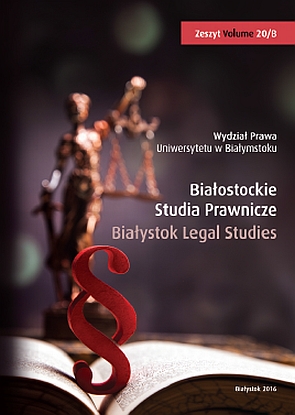Prawotwórcze kompetencje władzy wykonawczej w zakresie prawa powszechnie obowiązującego w Konstytucji RP z 1997 r. – stan obecny i postulaty de lege ferenda
The competences of executive power to enact legal acts in the scope of universally binding law in the 1997 Constitution of the Republic of Poland – the present situation and de lege ferenda postulates
Author(s): Maciej PachSubject(s): Politics / Political Sciences, Law, Constitution, Jurisprudence, Constitutional Law
Published by: Temida 2
Keywords: competences to enact legal acts; sources of law; executive power regulations having the force of statute; regulations; rationalisation of parliamentary system
Summary/Abstract: The article discusses the issue of the scope of the competences of executive power to enact universally binding legal acts in the light of the Polish 1997 Constitution. According to the author, the powers of the president in this field generally are delimited properly. However it seems to be necessary to clarify some details of the institution of extraordinary regulations having the force of statute, enacted during a state of martial law. On the other hand, the constitutional position of the Council of Ministers in the discussed area should be strengthened, as it is the government who conducts external as well as internal policy of Poland. In order to enable each Council of Ministers (including minority cabinets) the effective fulfilment of this function, the restitution of the governmental regulations having the force of statute, present in the 1992 so-called Small Constitution, should be considered. At the same time some significant modifications have to be provided to this legal construct. Otherwise it would remain only a letter of the constitution, as it happened on the ground of the Small Constitution.
Journal: Białostockie Studia Prawnicze
- Issue Year: 20/2016
- Issue No: B
- Page Range: 167-181
- Page Count: 15
- Language: Polish

